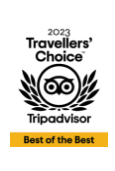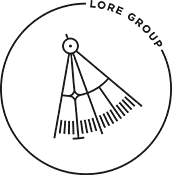A Thirst For Positive Impact
Sustainability editor Juliet Kinsman speaks to Machiel van Dooren of Made Blue Foundation about where, why and how the entrepreneurial charity is tackling the world water crisis — with the help of Pulitzer Amsterdam and Lore Group.
How did your journey begin?
My impact ventures began in travel and second-hand clothing, but it was work in carbon offsetting that drew my attention to the growing issue of water stress. Time with African communities sparked the ideation for the foundation, and we've just celebrated 10 years! I got involved in the fair-trade movement in Kilimanjaro, Tanzania, after starting my first social venture, where we got experts to spend time with coffee communities to improve their revenue. Seeing knowledge put to use, matching networks and resolving with a business approach made me realise my purpose.
Made Blue provides billions of litres of clean drinking water where there is a shortage. How much do you think people are aware of the global water crisis?
To most of us, water is a commodity that comes out of our taps and is in endless supply at no cost. Meanwhile, more than 700 million people — mainly women and girls — need to walk hours daily to fetch mostly polluted surface water that needs to be boiled over open fires to be drinkable. In our lives, we use about 120 litres a day, whereas the United Nations says just 20 litres would be fine for washing up, preparing a meal, having a drink. To put that in perspective, you could say it's the equivalent of flushing a typical toilet two times.
How does your partnership with Lore Group provide water-saving solutions?
Guests get a gift of water: Lore funds 100 litres of clean water for every room night sold. This sparks a change in how guests enjoy water throughout the hotel, helping each hotel conserve water and energy while making a big difference in a destination, such as Uganda, Nepal or Bangladesh. Guests can decide where to enable a family to have a full day of water. And we bring this into an interactive story around where that water will be made available — the funds will be distributed to all regions, but guests can choose which projects their gift goes to. It’s like a pre-paid present waiting for you to pass on, which also communicates the significance of water without saying or in any way what you should or should not do.
Which parts of the world are most at threat?
Water stress is a global phenomenon. When we think of severe droughts, most of us think of Sub-Saharan Africa. Or frequent flooding in densely-populated delta areas in Southeast Asia where seawater mixes with freshwater. According to the World Resources Institute, water stress is hitting lives in Europe and North America as aquifers run out of fresh water in the summer periods. As well as implementing small-scale water grids in communities deprived of clean water, many of us need to adjust our behaviour to cope with near-future risks closer to home.
As global citizens, how can we be more helpful? Water scarcity is listed as one of the top five global risks by the World Economic Forum, yet it doesn't get the same attention as rising temperatures.
And the two are very much related! A big part of one's everyday water consumption involves hot water: from your shower, bathtub, faucet… Acting more consciously about your water use automatically lowers your energy footprint, too. Big changes result from small actions, such as turning off the tap while brushing your teeth, singing your favourite three-minute song while showering, running your dishwasher and washing machine only when full, and watering the garden with rainwater. And, of course, helping stop the bottled water madness — in way more places than folks realise, tap water is drinkable and doesn’t need packaging or transportation.
Tourists' water footprints can be a huge drain on local supplies. How can we bring this down as an industry and as individuals?
At Made Blue, we believe in sharing positive, inspiring stories, nudging people to enjoy the water more consciously, at the same time, giving back to those who need it most. We’ve delivered more than 16 billion litres of water on behalf of about 600 companies. We help hotels extend the message and encourage guests to enjoy tap water, filtered if needed, reuse towels, skip the change of bedsheets. During your stay, most water is used in the bathroom, with laundering towels and sheets coming second. Acting more consciously in those areas significantly lowers the traveller’s footprint.
As a registered charity, how do you work efficiently?
We started with a small team and without an office, working remotely. With the three founders, it took us two years to gather 100 companies to join our mission. We've doubled in size since, but we have also seen cost increases because of inflation — interest is up more than 20% just in Uganda. So today, we need 33 cents to yield those 1,000 litres to keep that promise, with a cost increase of just 1% per year in operation. We believe in scaling what works: instead of designing clean water interventions ourselves, we study what projects and approaches have delivered outstanding results recently, using our funds and capacity to help scale.
You've delivered over 16 billion litres of water on behalf of about 600 companies: do they engage in real life with your impact?
Once a year, we bring donors and ambassadors together to experience our initiatives firsthand, paying their expenses, creating memories, and growing our network and impact further. You can’t explain just by telling — it’s very different being able to experience what’s happening. Travelling is about encounters and connecting with the local community and the positive energy. With Africa, there’s a bright future. Nothing beats having coffee brewed right in front of you, talking to people about their dreams and finding out their dreams are the same as ours. With our funds, we also look at how to scale inventions and only work with local builders and suppliers, with no parts flown in. We love the idea of putting financial power into development aid.
Words of wisdom for the wider tourism industry?
Creating lasting change starts with inspiring people through sharing positive stories and suggesting a few small steps in the right direction. And the tourism industry can spark a change that lasts beyond the journey.






